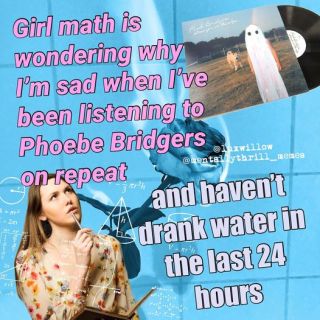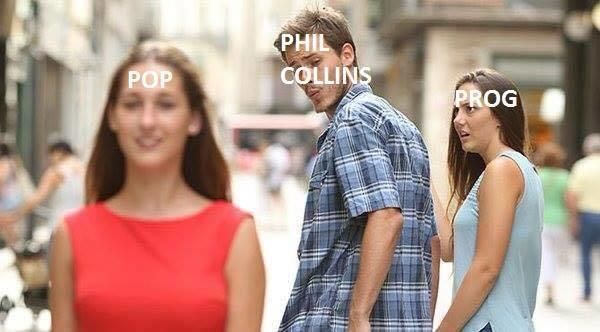This past month, the internet was full of creative conjectures about where Kate Middleton had disappeared to and why nobody seemed to know. Before there was an explanation, many people were drawn into the mass speculation, sharing all kinds of conspiracy theories and explanations—many of them intended to amuse. Partly obscured photos of Middleton were accompanied by theories that she got bangs and is waiting for them to grow out, or quips that her reveal on “The Masked Singer” is going to make everyone look silly.
The eventual explanation didn’t turn out to be amusing, but coping with uncertainty using humorous posts called “memes” may not be a bad thing.
Meme History
In modern internet parlance, “memes” are visual depictions of a cultural moment or topic that usually consist of an image and a brief caption. They are often humorous and are intended to be shared, with a wide variety of variations accumulating as they spread across cyberspace. Members of fandoms were some of the earliest users of memes and have continued to utilize them across just about every social media platform.
Memes are one of the ways that fans engage with and influence political, social, cultural, and economic aspects of life. Once viewed as passive consumers of content, fans are now understood to be active participants, not only commenting on the things that fascinate them but also exerting influence.
As early adopters of technology, fans instituted practices that spread through the broader culture, affecting how we all interact with everything that happens in our world. The platforms that fans have been using for decades are now some of the main platforms for news as well, so memes are more broadly used than ever.
The term “meme” has even come to suggest influence and popularity—shares of companies that become unexpectedly popular are now known as “meme stocks,” their popularity driven by forums on Reddit for fan favorites such as Gamestop and AMC Entertainment.
While memes have been used to promote conspiracy theories, many popular memes are just for fun, a way of relieving stress in the midst of a hectic world. Did you share last month’s viral meme about the oddly constructed (and utterly hilarious) popcorn bucket for the movie “Dune: Part Two”? Many fans of the movie did, and were only too happy to poke fun at its strange appearance, amusing other fans in the process.
Fans also use memes as a positive way of building civic engagement and values. And like many forms of creativity and communication, memes have been found to have some beneficial emotional and psychological effects.
Pandemic Memes
There is some research that suggests that memes can be a coping strategy for anxiety. During the first year of the COVID-19 pandemic, people used social media more than usual, including humorous memes about the unprecedented cultural changes occurring all over the world.
Humor can have a positive impact on our sense of well-being, and memes are no exception. Several studies have found that seeking out and sharing memes that were high in emotional valence, humor, and relatability were effective ways of coping with anxiety during the pandemic, especially for more anxious individuals.
One study found that viewing memes was related to higher levels of reported humor and more positive emotions. Viewing memes, as opposed to viewing other online content, indirectly increased coping efficacy through a pathway of engendering more positive emotions. Viewing memes about COVID-19 also was related to deeper information processing and lower levels of pandemic-related stress.
The researchers concluded that memes about stressors can support people’s ability to cope with that stressor, and that directly addressing the stressor through humorous memes can have a beneficial effect on individuals’ emotional states.
Mental Health Memes
Memes that depict mental health challenges are also common, often using dark humor and irony as a coping strategy for the poster and for those experiencing similar symptoms who view the meme.

So-called “sad memes” are popular, in part as an attempt at authenticity in the face of the requirement to show only positivity on social media platforms in order to gain likes and popularity. Researcher Donna Freitas refers to this as the “happiness effect,” the idea that individuals, especially young people, feel pressured to post only happy things on social media—and then feel inferior when all they see are people posting happy things on social media! Sad memes use humor but also allow more authenticity of expression instead of only a positive highly curated presentation of self.
The Wojak meme, one of the earliest to find widespread popularity, is a simple drawing of a bald man used for people to express an endless variety of emotions in an endless variety of situations. (Crying Wojak is one of the most shared versions and one of the popular phrases to accompany the drawing is “I know that feel bro”). There’s even a sad hamster meme (“This is me, if you even care”) that’s recently been popular.
Sometimes the point of the meme is explictly to make fun of the perfection that social media encourages—a viral meme known as “Gigachad,” for example, is an unrealistically buff guy who isn’t the smartest tool in the box but is ultra confident anyway. The meme allows ordinary individuals to express derision for something that’s unattainable for most of us, in a socially acceptable way.
Research shows that people viewing mental health memes report a positive experience, with the meme facilitating a humorous, often ironic take on what might be a negative situation. That the memes are shared and others respond with agreement can be a form of peer social support and a validation of the poster’s experience. The humorous interpretations can also facilitate cognitive reappraisal of negative thoughts and experiences, helping people understand and cope with their own situations better.
Capturing Human Experience
Memes, as simple as they are, can nevertheless capture universal human experience in a powerful way. The widely used “Distracted Boyfriend” meme began as a stock photo by Antonio Guillem. The photo-turned-meme has been use to critique all sorts of perceived transgressions in a humorous way. It works because we all relate to the fear of betrayal while also making some pointed commentary on a current cultural moment and calling out someone or something for their lack of loyalty, understandable or otherwise.

The still popular “Expectation vs. Reality” meme is used when you were hoping for something great and got something else instead. The emotional experience of disappointment is something everyone knows and no one enjoys—but viewing someone else’s example of that same crushing emotion can help you feel less alone in those feelings. Inspired by a 2009 movie called “500 Days of Summer,” where two scenes are juxtaposed as “expectation versus reality,” the idea has been used for the past fifteen years to help people cope with their disappointment about everything from an unflattering photo op with a celebrity to that dress you bought on the internet. The meme is amusing, but also feels validating as we’re reminded that disappointment is a part of life and usually not the end of the world.
Being able to laugh in the midst of your own disappointment can make it just a little easier to deal with—and that’s where a meme just might help.
References
Akram, U., Irvine, K., Allen, S. F., Stevenson, J. C., Ellis, J. G., & Drabble, J. (2021). Internet memes related to the COVID-19 pandemic as a potential coping mechanism for anxiety. Scientific Reports, 11(1), 22305–22305. https://doi.org/10.1038/s41598-021-00857-8
Akram, U., & Drabble, J. (2022). Mental health memes: beneficial or aversive in relation to psychiatric symptoms? Humanities & Social Sciences Communications, 9(1), 370–370. https://doi.org/10.1057/s41599-022-01381-4
Chateau, L. (2020). “Damn I Didn’t Know Y’all Was Sad? I Thought It Was Just Memes”: Irony, Memes and Risk in Internet Depression Culture. M/C Journal, 23(3). https://doi.org/10.5204/mcj.1654
Freitas, Donna. The Happiness Effect: How Social Media Is Driving a Generation to Appear Perfect at Any Cost. New York: Oxford UP, 2017.
Myrick, J. G., Nabi, R. L., & Eng, N. J. (2022). Consuming Memes During the COVID Pandemic: Effects of Memes and Meme Type on COVID-Related Stress and Coping Efficacy. Psychology of Popular Media, 11(3), 316–323. https://doi.org/10.1037/ppm0000371
